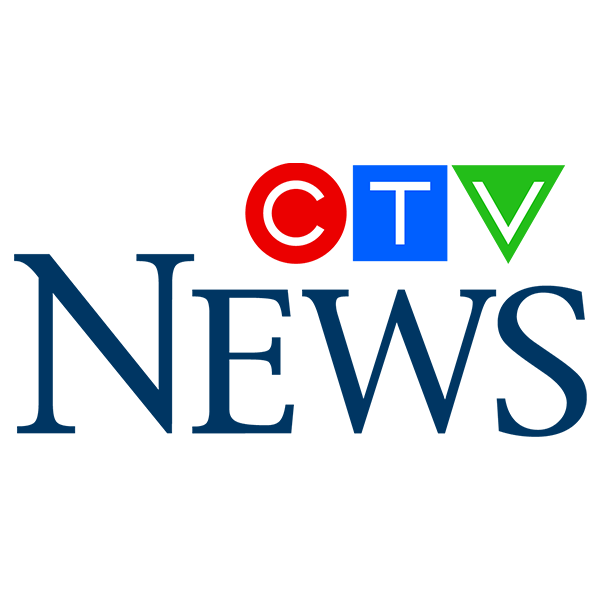MONTREAL — In the one-and-only English-language debate of the 2025 federal election, Liberal Leader Mark Carney and Conservative Leader Pierre Poilievre clashed over which frontrunning candidate is not only the best choice for change, but the best-placed to take on U.S. President Donald Trump.
On Thursday night in Montreal, Canada’s four main federal political parties faced off for a second time in as many days and did their best to make their electoral case to voters just ahead of advance polls opening this weekend.
The debate kicked off with moderator Steve Paikin asking each leader about the defining issue of this election: Trump and his sweeping tariffs.
While all parties agreed that Canada needs to keep up its counter-tariffs, and continue to show strength in the face of the U.S. president’s annexation and economic threats, Carney and Poilievre sought to draw contrast on how they’d do just that.
“The president is looking to fundamentally restructure the trading system. So, the starting point has to be one of strength. It has to show that we have control of our own economic destiny,” Carney said.
As the debate went on, he repeatedly made efforts to steer the conversation back to the issue of Canada-U.S. relations.
Poilievre said while there are some things he “would do the same,” specifically maintaining Canada’s retaliation to Trump’s “economic aggression,” he would also move to cut taxes, reduce red tape, and approve resource projects “so we stand up to President Trump from a position of strength.”
‘I’m a very different person’
The leaders’ positions on stage were pre-selected, and arguably played into the dynamic on display. Poilievre was on the far left, and standing next to him was Carney.
Over the course of the debate, Poilievre directed his comments at Carney and it appeared at times that Carney would not look over at him. Then Carney went on to deliver a line — which he later repeated — that it may be difficult for Poilievre, as he spent years running against Justin Trudeau and the carbon tax, and “they’re both gone.”
In his own attempts to frame the campaign around a path forward, Poilievre repeatedly emphasized how Carney was after “a fourth Liberal term,” and stated that Carney was “not the change.”
Singh, Blanchet land jokes and attacks
NDP Leader Jagmeet Singh and Bloc Québécois leader Yves-François Blanchet were — similarly to their standing in the polls — on the peripheries of the conversation, but both had moments in which they broke through with strong jabs and moments of humour.
Singh at times interjected when Carney and Poilievre were going at it. And in an effort to find a creative workaround to the rules of no props on the debate stage, the NDP leader held up six fingers as he remarked on Poilievre only building six houses while at the helm of the file.
In another instance, Blanchet delivered a sharp monologue, targeting Carney. He said that while the Liberal leader claimed to be different than Trudeau and called himself a great crisis manager, Brexit happened, and the Bloc leader questioned what he negotiated beyond tax havens.
Leaders draw contrast on cost of living, crime
As the debate moved on to issues of affordability, climate change, crisis leadership and public safety, the leaders sought to articulate their policy ideas while speaking directly to voters.
Early into the affordability section Poilievre took a question about how his housing plan would credibly result in building more homes, and the Conservative leader directed his response to any young people watching who are hoping to one day own a home.
When it was his turn to talk housing, Carney said one of the reasons he entered federal politics was the housing crisis and the cost of living crisis, and “to help fix it.”
Asked if he still thinks climate change is a priority for Canadians, Singh said “absolutely,” citing conversations he’s had with young people who view it as a crisis, and seniors who talk about the days where they didn’t need air conditioning.
During the section on security, Paikin asked each leader to briefly state what they thought the biggest security threat to Canada was. Poilievre said the “rampant crime wave,” across the country; Carney said “China;” Singh said illegal guns and drugs; while Blanchet said the country is not self-sufficient, and as a result, dependent on Americans.
Last debate before advance polls
Raising the stakes for how the leaders performed is the fact that this was their last time debating before the April 28 election day. Coming out of tonight, the final push to the finish line of this 37-day race is officially on.
And, with a holiday weekend kicking off on Friday, how the leaders perform tonight will likely weigh into the dinner-table conversations being had in the days ahead.
Heading into Thursday’s debate, the Liberals held a marginal five-point advantage over the Conservatives, while a breakdown of voter intention by age showed an “absolute dead heat” among middle-aged voters.
A factor that’s drawn some ire heading into the pair of debates is that none of the parties had presented their full platforms or associated costing of big promises.
During Wednesday night’s French debate, leaders told Canadians to stay tuned, with some of those policy books expected to drop this weekend. The disinvited Green Party of Canada presented its platform ahead of Thursday’s debate.
One forum where perhaps some additional accountability about leaders’ positions could have been articulated, was in the scheduled post-debate scrums.
However, while the other leaders questioned Carney over his assets and the contents of his blind trust, unbeknownst to them, news had just broken in the media filing room that the question-and-answer session was cancelled due to what sources were told were “security concerns.”

